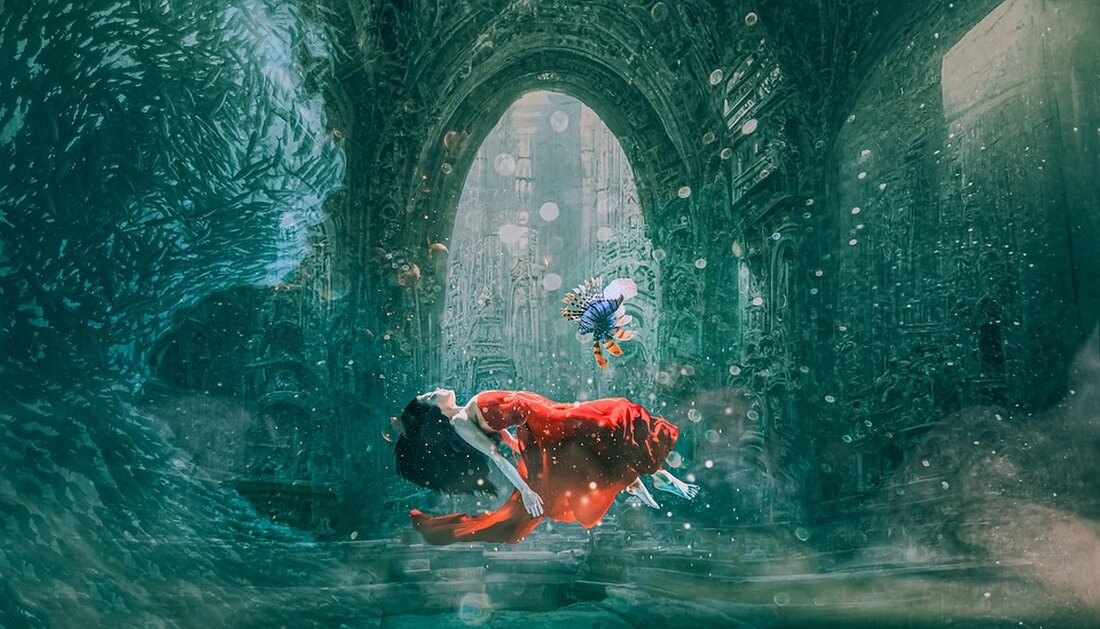Did South Korease develop legendary free divers for life in the water?
Did South Korease develop legendary free divers for life in the water?
50 miles (80 kilometers) In front of the south coast of the Korean Peninsula is a unique and celebrated community of women: Haenyeo . These women dive all year round in front of the island of Jeju, collect sea urchins, abalons and other seafood from the sea floor and dive up to 18 meters deep. They spend four to five hours under water several times a day - and without any breathing devices, only dressed in a wetsuit.
tradition and culture of the Haenyeo
"For thousands of years, we believe that this incredible, matrilineal craft, in which you learn from the mother to dive at a very young age. You go to dives in groups, and that is exactly what you do: Dive," explains Melissa Ann Ilardo, geneticist and assistant professor for biomedical computer science at the University of Utah. "They really spend an exceptionally large part of their time under water."
genetic adaptations of the divers
Ilardo and her colleagues from South Korea, Denmark and the USA wanted to investigate how these women manage to do this incredible physical performance. The researchers wondered whether the divers have unique DNA that enables them to get along without oxygen for so long, or whether this ability is the result of years of training - or even a combination of both.
The results of your investigation, which on May 2 in Science magazine Cell Reports Unveiled genetic differences that the Haenyeo developed over time to deal with the physiological stress of free diving. One day this discovery could lead to better treatments for blood pressure diseases, according to the researchers.
The future of the Haenyeo
Diving has been an integral part of culture Jejus for many years. It is unclear when it became a women's activity, but theories say that it may be related to a tax intervention on male divers or a lack of men, says Ilardo. Nevertheless, diving is such an integral part of the Jeju population that the shortened words of the Jeju own language are due to the fact that divers have to communicate quickly, as the new study shows. Unfortunately, this tradition is slowly dying. The young women do not continue this matrilinear tradition; The current group of around 70 years of age could represent the current group of Haenyeo divers, as the researchers show in the study.Diving Into DNA
Ilardo and her colleagues recruited 30 Haenyeo divers, 30 non-diving women from Jeju and 31 women from the South Korean mainland. The average age of the participants was 65 years. The researchers compared the heart frequencies, blood pressure values and spleen sizes of the participants and sequencen their genomes - a detailed genetic blueprint - from blood samples.
The biggest problem in the study was to secure the physical stress of diving for a relatively long time, especially for participants without diving experience. The researchers solved this problem by carrying out simulated dives, in which the participants had to keep their breath while they dived their faces in cold water.
scientific discoveries and their importance
The analysis of the team showed that the participants of Jeju-both divers and non-divers-have more than four times more likely to have a genetic variant associated with lower blood pressure compared to women from the mainland. "The blood pressure increases when you dive. The blood pressure of the (residents of Jeju) increases less," said Ilardo.
The researchers suspect that this characteristic may have developed to protect unborn children, since the Haenyeo dive throughout pregnancy if high blood pressure can be dangerous. The team also found that the participants of Jeju more likely had a genetic variation that was associated with cold and pain tolerance in previous research. However, the researchers have not measured the ability of the participants to endure low temperatures, which is why they cannot safely say whether this variant for the ability of the Haenyeo to dive all year round is important.
a basis for new medication
The genetic variant, which was identified in the study among the residents of Jeju with lower blood pressure, should be examined according to Ben Trumble, extraordinary professor at the School of Human Evolution and Social Change from Arizona State University. "Those with this gene had more than a 10%reduction in blood pressure compared to those who do not have this gene. This is a rather impressive effect," said Trumble, who was not involved in the study. "Genes coding for proteins, and if we can find out which changes in proteins influence blood pressure, we could possibly develop new medication."
ilardo hopes to continue to research the Haenyeo and to gain a deeper understanding of the medical implications. "This study raises more questions than she answered, but above all she shows that these women are extraordinary," she said. "There is something biologically different about them that makes them special, no matter how you look at it, and what they do is unique and celebrated."


Kommentare (0)